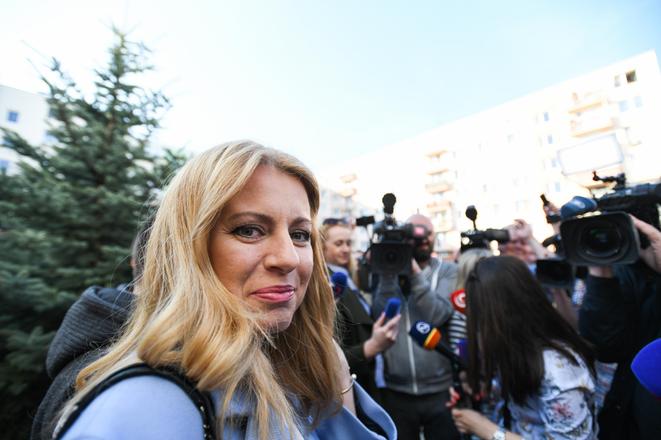In this story, you can read about:
Whether Zuzana Čaputová will change the direction of the Presidential Palace
What her victory means for other central European countries
If she would have the same chances of winning in Hungary, Poland or the Czech Republic
A pro-western, liberal woman and an activist; Slovaks once again elected a person with virtually no experience in Slovak politics as their next president. More than just that, she is also a person who sticks out among the leading politicians in the central Europe region with her attitudes.
There are no crucial differences between the opinions and attitudes of Zuzana Čaputová and the incubment President Andrej Kiska, however.
“She will continue the already implemented traditions,” Tomáš Strážay of the Slovak Foreign Policy Association told The Slovak Spectator. This primarily means an emphasis on “liberal and democratic values”.
Čaputová is not setting but rather highlighting a trend that has already been present in the countries of the Visegrad Group (V4), although this trend might not have gained enough notice, opined Csaba Tóth, director of the Hungarian think-tank Republikon Institute.
“True, there is a strong nationalist and populist trend in these countries, but also a liberal counteraction,” Tóth told The Slovak Spectator.
V4 countries are not homogeneous
The municipal elections in three countries – Slovakia, Poland, Czech Republic – have already shown a liberal trend when opposition mayors were elected in their respective capital cities; this could happen in the fall in Budapest too, Tóth noted.
“Čaputová shows that countries in this region are not homogeneous,” he said.

When it comes to the president having an impact on other countries in the region, Strážay is more sceptical, as Slovakia has limited possibilities when it comes to influencing bigger countries.
“Opposition in Poland or Hungary might view this as a signal, maybe inspiration for change in their home societies, but when it comes to elections in these countries, I think we cannot talk about direct links,” Strážay noted.
However, what positively sticks out is that she is the first Slovak female president.
“It is hardly ground-breaking in the world, but in our region, it is definitely something new,” he said, adding there have been few female prime ministers or even ministers in central European countries.



 (source: Martin Medňanský, SITA)
(source: Martin Medňanský, SITA)